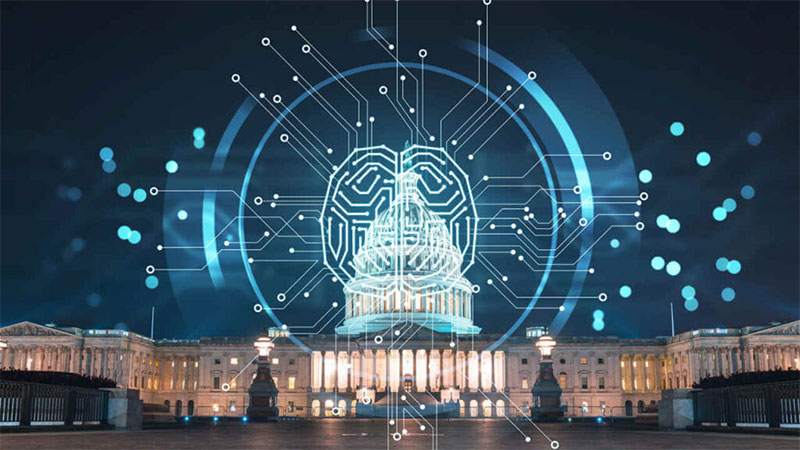AI is the New Arms Race

The excitement and fear of bots have existed for decades. From vacuum cleaners and washing machines in the 1950s to self-driving cars and automated surgeries in today’s world, robotics have, in many ways, made our lives easier. At the same time, movies and books have introduced themes of robots becoming self-aware and eradicating the human race. The reality lies somewhere in between ultimate convenience and total domination. Artificial intelligence (AI) is truly the Wild West right now and Congress is struggling to move fast enough to legislate important boundaries.
In recent weeks, the Senate has held hearings and attended a classified briefing on the pros and cons of artificial intelligence. They left these meetings deeply troubled and motivated to work on legislation to reign in unsavory practices of the tech world. China has been exposed as one of the biggest threats due to its rapid innovations. If the United States buys Chinese-owned technology or allows businesses tied to the CCP to thrive in our country, their communist ideologies could further infect our culture and government.
On the heels of the 2024 presidential election, it’s imperative that we understand and are able to identify AI misinformation. The 2016 election exposed Russia’s intent to meddle in U.S. elections. Facebook’s crackdown on political speech was one-sided — empowering the Left’s agenda and silencing conservatives. AI in the wrong hands can influence who is placed in power.
It’s important to note that certain AI models, such as ChatGPT, pull from information already available. With the dominance of liberal-leaning media that scrubs the internet of conservative thought, AI is likely to move the Left’s agenda forward. In a Stanford study, AI researchers stated:
AI systems are being used in the service of disinformation on the internet, giving them the potential to become a threat to democracy and a tool for fascism. From deep fake videos to online bots manipulating public discourse by feigning consensus and spreading fake news, there is the danger of AI systems undermining social trust. The technology can be co-opted by criminals, rogue states, ideological extremists, or simply special interest groups, to manipulate people for economic gain or political advantage.
After the Senate’s classified briefing, Senator Marco Rubio (R-FL) provided insight as to what Congress is considering:
The one thing I’m certain of is: I know of no technological advance in human history you’ve been able to roll back. It’s going to happen. The question is how do we build guardrails and practices around it so that we can maximize its benefits and diminish its harm… But AI is not the kind of thing where, unlike some technologies from the past, it’s not knowledge-based and engineering based. So it’s not the kind of thing that you can confine to the national border. Some other country will still develop the capability that you’re not allowing in your own country, so I’m not sure it solves it from a global standpoint.
His next comment is most telling about the mindset of our elected officials:
I just don’t particularly know enough about AI yet to even understand what it is we’re trying to regulate.
Members must rely on experts to provide non-partisan information in order to craft reasonable legislation. However, big tech companies, including CCP-owned businesses, intend to steam-roll their competition. Congress must be vigilant, discerning, and wise when drafting language as it pertains to AI.
The Senate’s skepticism is refreshing to see, but they will not be able to legislate human interaction. An American Psychological Association study claims that 86% of Americans constantly or often check emails, texts, and social media. When surveying parents, 58% say they feel attached to their phones with the same number of parents claiming that their children are attached to their phone or tablet. Even with all this rapid “connectedness,” Americans are feeling increasingly lonely. Psychologists and health professionals are even calling this problem a “Loneliness Epidemic.” Technology has already caused rifts in families and relationships.
Both parties have genuine curiosity and concern about AI, but no bipartisan legislation has been introduced as of yet. However, Senate Majority Leader Chuck Schumer (D-NY) has indicated that Senators are working on a regulatory framework that could take months. While much of this field is foreign to many Americans, we must continue to keep an eye on this legislation to ensure our country and our families are protected from bad actors — both real and “artificial.”
















